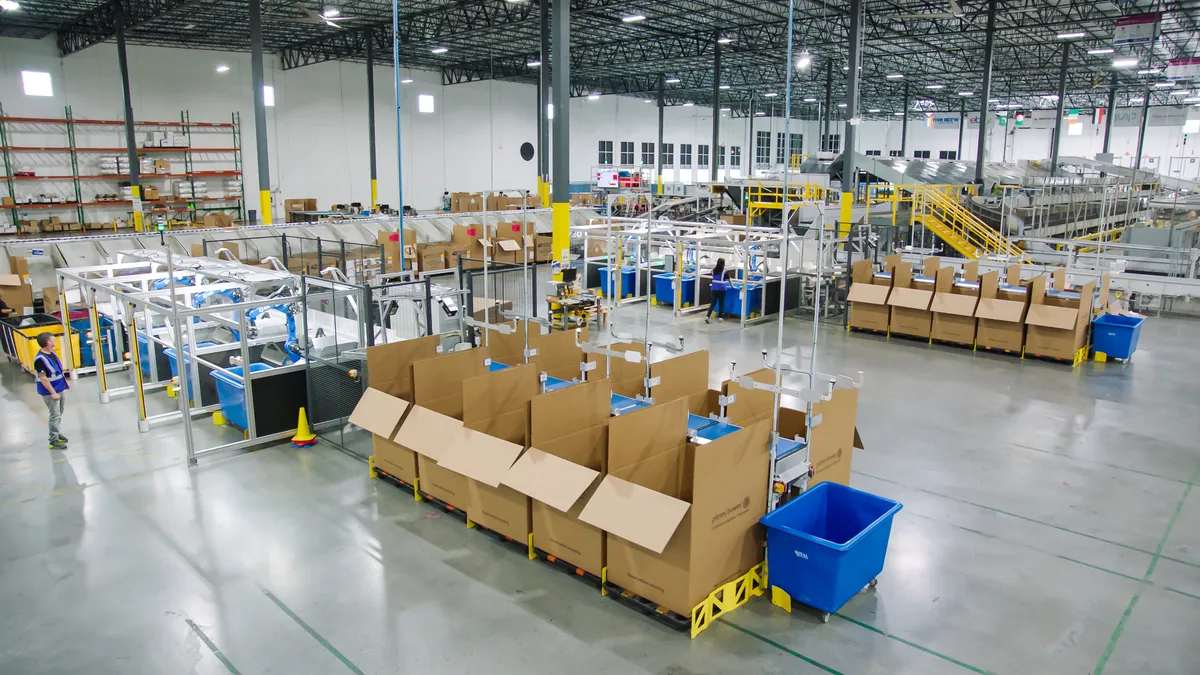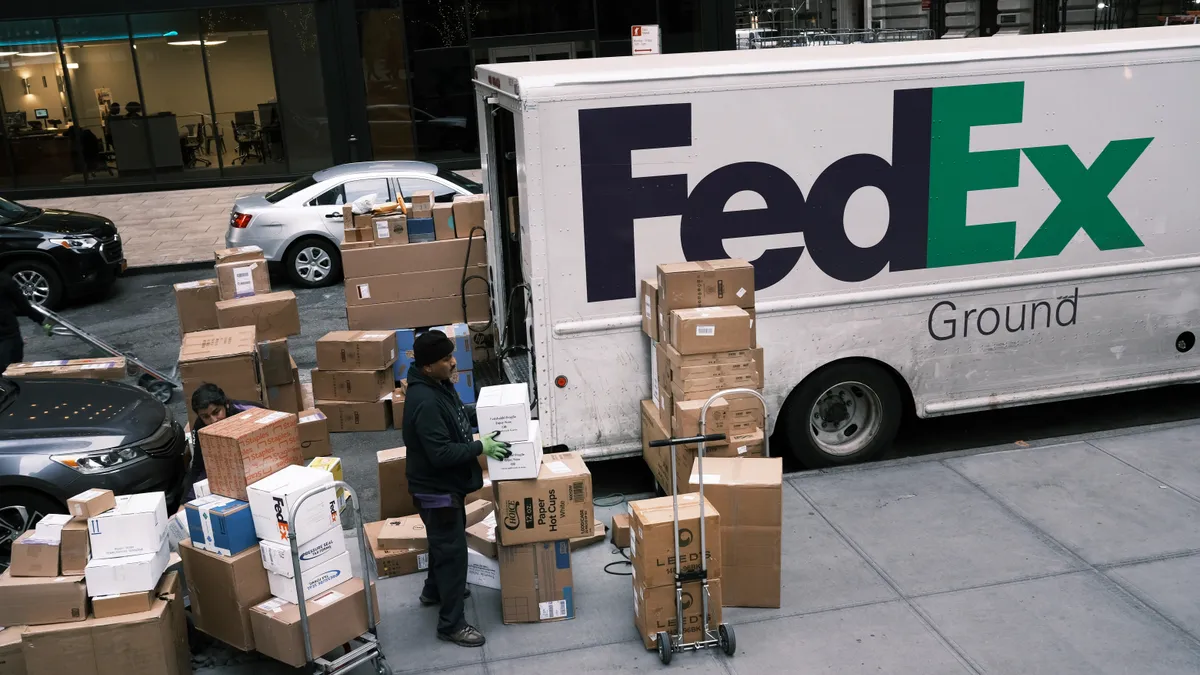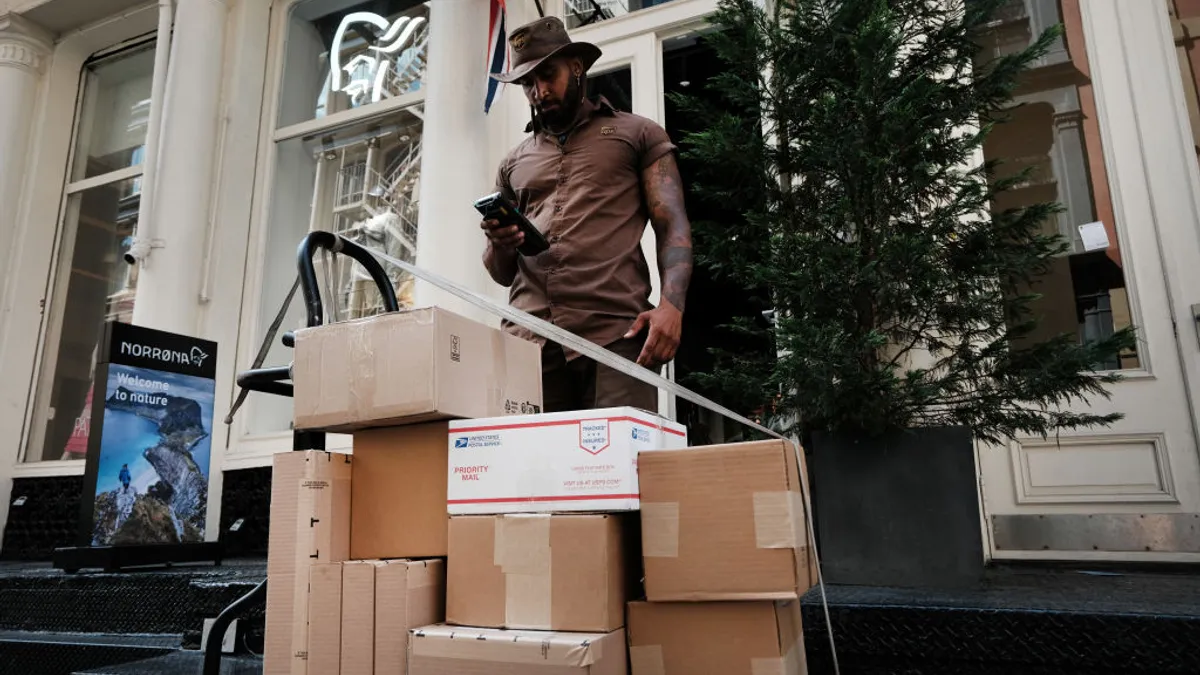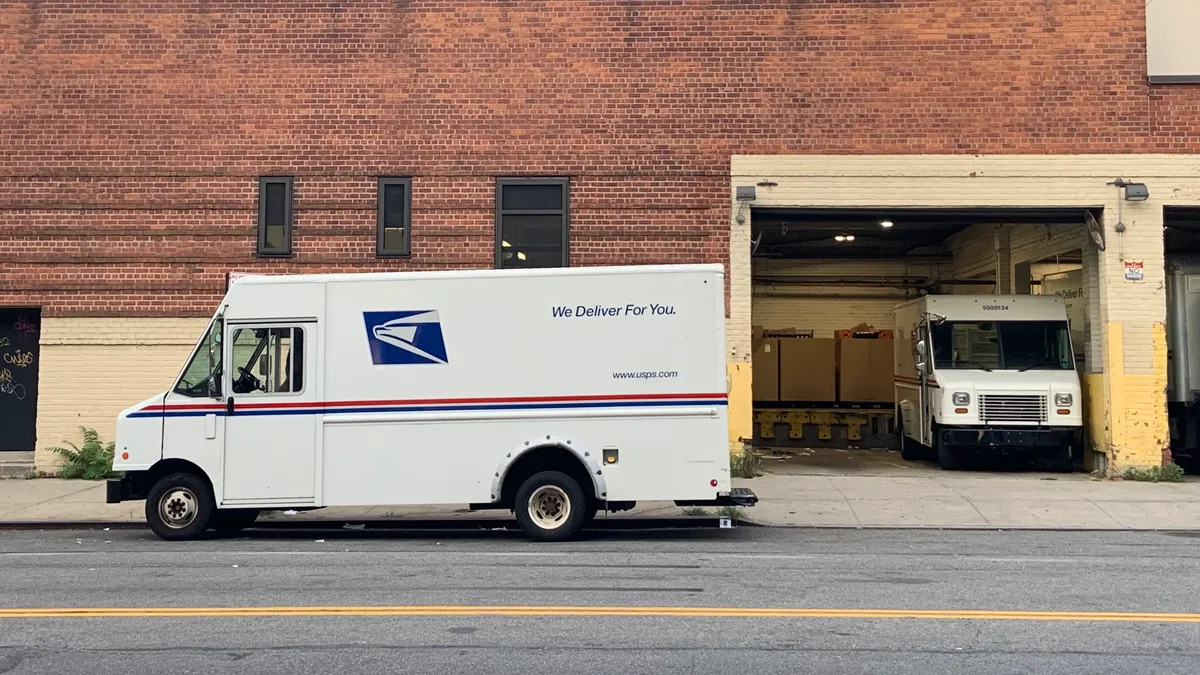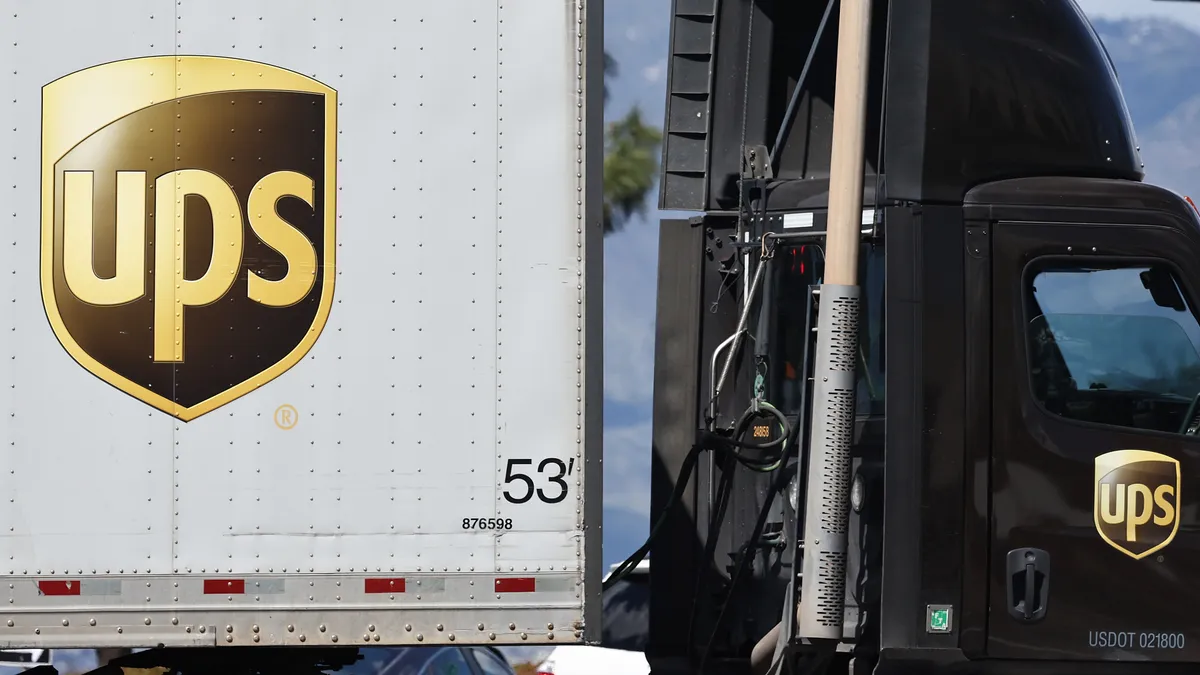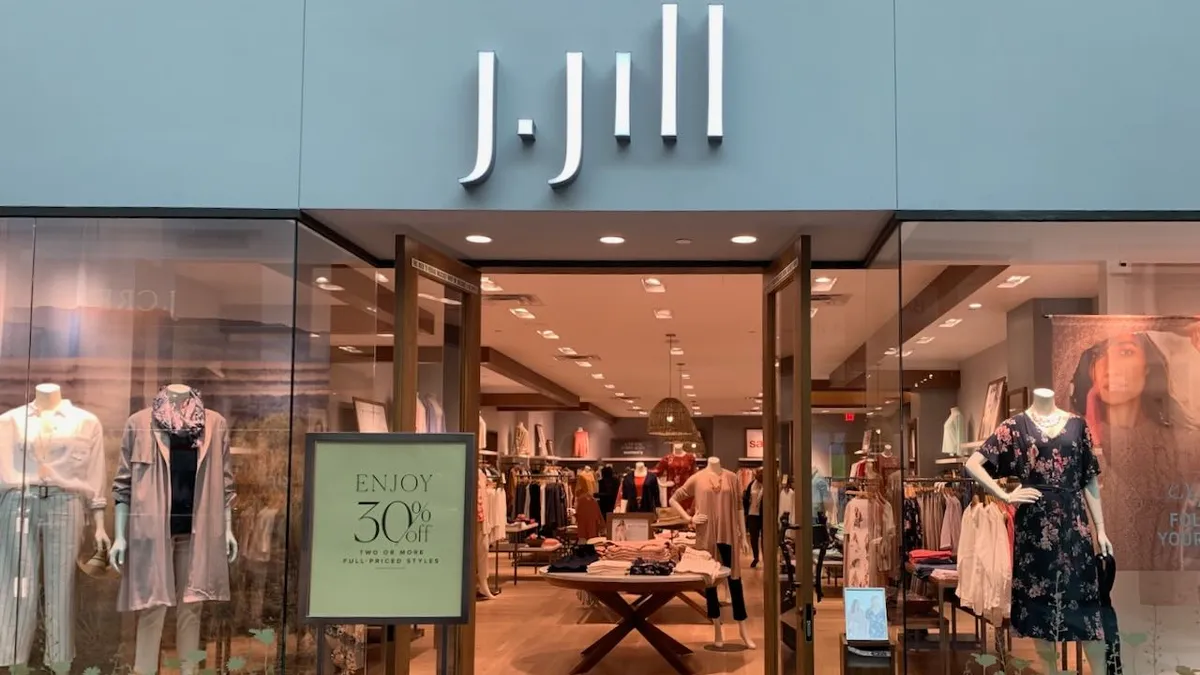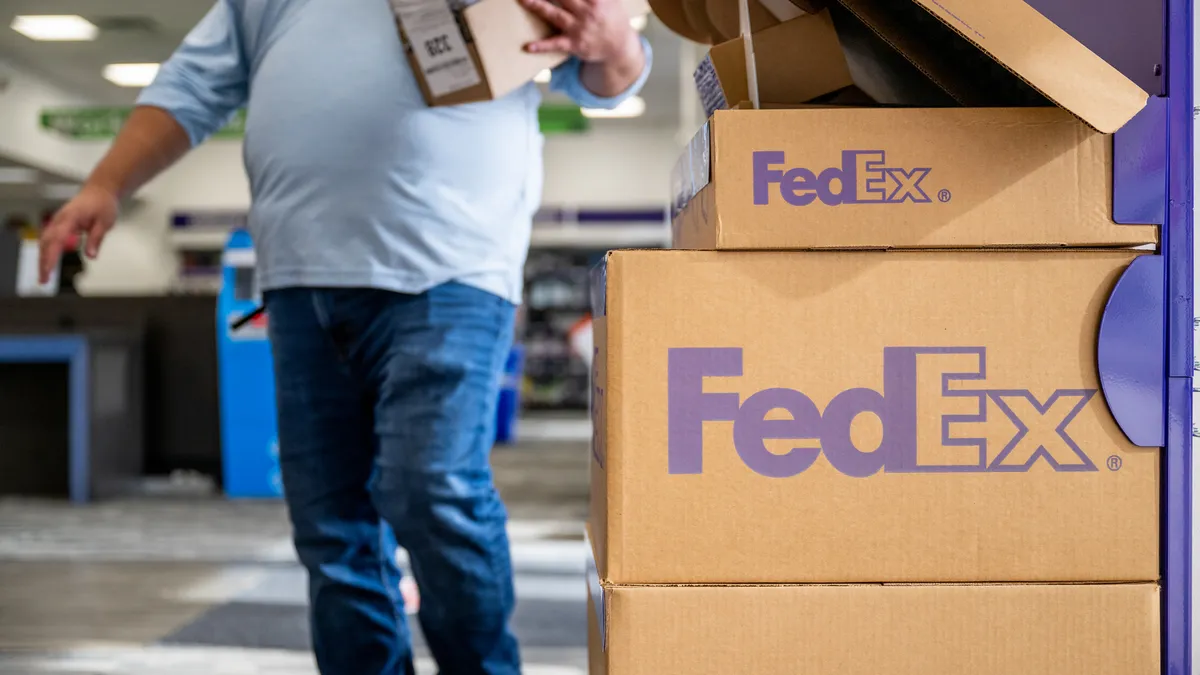Pitney Bowes will put its e-commerce logistics segment's overhauled fulfillment network to the test this peak season, betting on automation and a more stable workforce to deliver strong service.
Global Ecommerce, which offers delivery, returns, fulfillment and cross-border services, has made several operational investments since peak season 2021, including the shifting of volume from sites reliant on manual sortation processes to automated facilities.
"We've been on this march to basically take what was a mostly manual, relatively smaller footprint and turn it into a more modern, national parcel network that had the latest technology, the latest systems, etc.," said Gregg Zegras, Pitney Bowes' Global Ecommerce EVP and president, in an interview with Supply Chain Dive.
Pitney Bowes marked the completion of this shift in July, when it officially opened a fully automated Global Ecommerce facility in the Chicago area. The segment's hubs now share much of the same technology, including robotic systems from Ambi Robotics and Plus One Robotics to improve parcel sortation efficiency while handling repetitive and strenuous tasks.
"We have completed the buildout of the network that we need in order to service the volume that we see over the next three to four years," Zegras said. "Chicago was kind of the final mile in that."
Pitney Bowes bolsters Midwest footprint
In addition to the robotics investments, Pitney Bowes has also shifted to a more balanced mix of company employees and temporary workers, rather than primarily relying on temporary staffing. Zegras said this "more stable" group of employees and the robotics systems working on site together have the company in a comfortable position heading into a critical peak season.
High-stakes holidays
Pitney Bowes has much at stake to deliver a strong Q4. Investors have been pressing for a sale of its Global Ecommerce segment this year amid continued struggles to reach profitability, which would leave the company with its Presort and SendTech businesses.
The segment's challenges continued in Q3, as it lost $42 million in adjusted earnings before interest and taxes. Pitney Bowes interim CEO Jason Dies said on a November earnings call that although Global Ecommerce has "an extremely valuable foundation" and is growing its domestic parcel volume, its current financial results aren't sustainable.
"We are focused on actions with the aim of not continuing to incur the level of losses we've been reporting," Dies said. "As we continue prioritizing clients and making sure we deliver during peak season, our efforts are centered on taking action to realize the segment's potential."
Strong performance during the busiest delivery stretch of the year is crucial for Global Ecommerce, Zegras noted. It struggled with execution during the 2020 and 2021 peak seasons, complicated by a surge in pandemic-driven demand and limited carrier capacity overall, but rebounded during last year's holiday delivery rush, he said.
"When you have good execution like we did in 2022, the conversations are not about rebuilding confidence and not about keeping your business with us," Zegras said. "It's, 'What else can we do together? How can we grow together?'"
These conversations are why Global Ecommerce has seen U.S. volume increase, Zegras said, running counter to demand declines at FedEx and UPS. The segment saw 51 million packages processed in its domestic parcel business in Q3, a 38% increase year-over-year.
But that volume growth hasn't translated into stronger financial results, as Pitney Bowes and other shipping companies contend with reduced pricing power, pressuring their per-package profitability. Domestic parcel gross margin fell by 50 basis points YoY in Q3, EVP and CFO Ana Maria Chadwick said on the earnings call.
"The challenging macro environment, market overcapacity and parcel mix continue to put downward pressure on pricing, which offset the continued improvement in unit cost economics," Chadwick said.
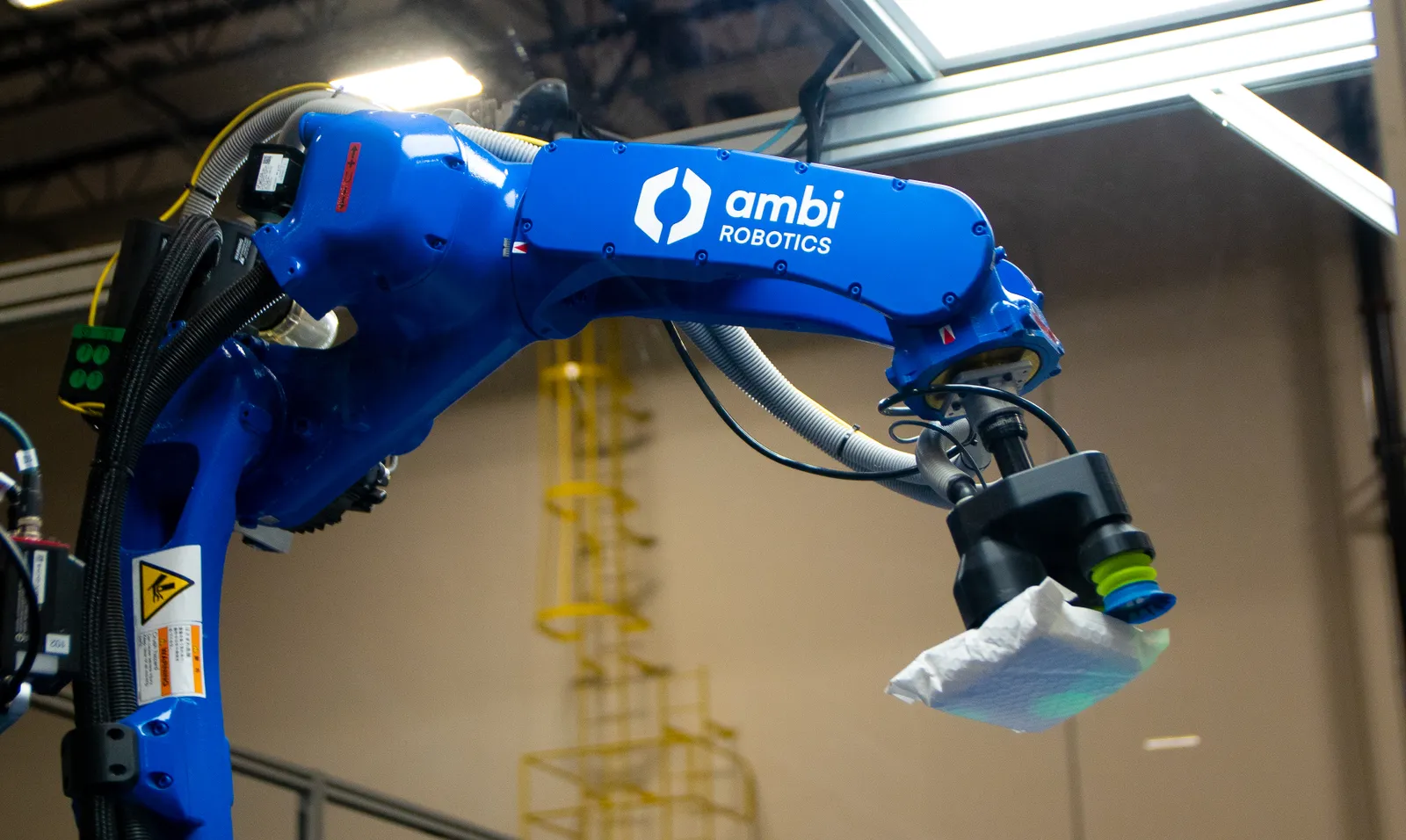
How Pitney Bowes looks to grow
Despite the persistent financial challenges and difficult demand environment, Zegras said he expects Global Ecommerce's customer base to continue growing. It's positioning itself as a more "relationship-focused" shipping provider versus UPS and FedEx that can be more attentive to customers outside of the highest-volume shippers. Last year, executives highlighted new domestic parcel customers such as Shein, Hudson’s Bay and Japan Crate.
"The most attractive market for us is that mid-market retailer that tends to be a bit smaller and tends to have a more difficult time getting that kind of attention from the larger providers in the market," Zegras said.
The segment is also focusing on how it can bundle its different delivery, returns and fulfillment services together to strengthen existing customer relationships. For example, a client may use Pitney Bowes just for domestic delivery, but they may also have cross-border delivery needs that the company can provide, Zegras said.
Furthering those ambitions, and building the foundation for Global Ecommerce to achieve profitability, calls for reliable service during the peak season first.
"We're well prepared for whatever comes over the next four or five weeks," Zegras said.
This story was first published in our Operations Weekly newsletter. Sign up here.



